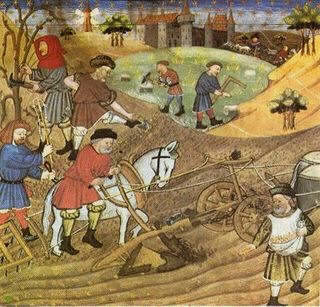Evolution or Revolution
A meritocracy is a kind of evolution, a social evolution. Like biological evolution, its business is to reward the survivors, and winnow out the weak. It is a hard game but the rules are set by Nature herself.
For all its advantages over less obviously fair systems of resource allocation, like systems based on dynastic rule, one disadvantage of a meritocracy gives license to those who do well in it to pat themselves on the back a bit for their good genetics and intelligence (forgetting the role of luck). It does not encourage charity – it believes that there really are ‘deserving poor’.

But perhaps meritocracies aren’t so different to dynasties after all. For if meritocracies are a good principle, why keep them only one generation deep when they can be inter-generational? Dynasties are simply meritocracies that are allowed to build up the merit from generation to generation. The opportunity to do so is itself part of the reward which a meritocracy provides to encourage us to strive. Evolution certainly passes on its rewards in this way, allowing species to accumulate their advantages.
Unlike a meritocracy though, evolution acts unevenly on organisms. Sometimes the competition is fierce, such as when landmasses join and a region is flooded with a new species; or when the climate changes and resources become scarce. But for many other times the competition wanes and organisms can become more experimental and exuberant, such as often happens on islands where e.g. dodos can experiment with flightlessness in the absence of predators. Most of these frivolities will quickly become extinct when the competition increases again, but occasionally some new idea is hit on which gives a significant advantage, a new weed emerges to conquer the world.
Possibly these little evolution holidays are essential to the development of complex new traits. Endless competition for resources is not a constant factor in any ecosystem, for sometimes resources are abundant. So it should also be in a meritocracy – as well as the competition in the marketplace of ideas, there needs to be a safe place for experimentation.
Funnily enough this happens naturally if you allow dynasties to exist, as the rich create and inhabit a playground which is free from the competition under which everyone else must work. It also happens in the modern world within certain institutions – or with the apparatus of a beneficient state – perhaps one which provides a living wage – which takes the heat off the need to constantly engage in the struggle to succeed. The advantages of social apparatus over dynasties is that dynasties essentially rely upon the slavery of much of the population, whereas a social safety net enslaves no-one.
Where meritocracies fail I think, is where they fail to address that need for some space to play. Life needs room to innovate, there need to be good times as well as hard times. It’s a misconception that only through constant struggle will the best be brought out of us. This is the lie that is behind austerity movements, and the cutting of state safety nets. The argument for such cuts, when you get down to it, is that people must be left to make their own way by merit alone, there is no helping hand. But this is a myth – for a properly functioning system we must make resources available. Otherwise we will quickly revert to dynastic rule – and of course that seems to be happening with the vast inequalities of wealth that are now the norm in the west. Perhaps this is the natural consequence of the market-meritocracy that has existed in the west.
But a meritocracy is not the only way evolution can happen to society. The alternative is if instead of struggling against each other, we join together in the struggle against the wider universe – against the challenges posed by the Earth’s capacity to support our growing population for instance. For this we must come together and think as a single brilliant organism, and leave behind the sordid game of keeping each other down as we scramble to be at the top of the muck pile.


